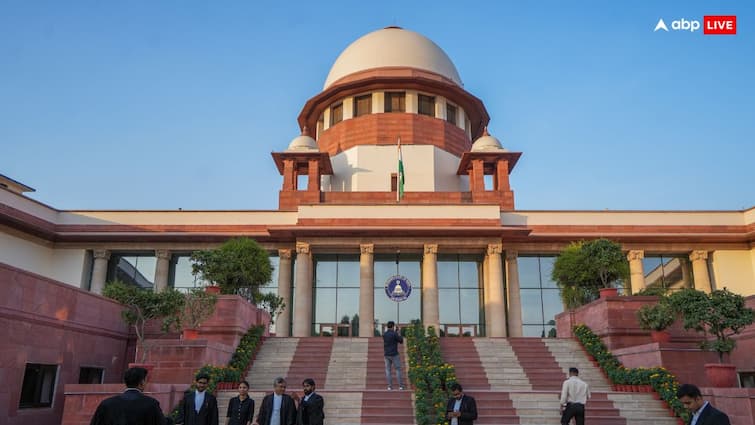New Delhi, Aug 13 (PTI) Observing that electoral rolls cannot remain “static” and there is bound to be a revision, the Supreme Court on Wednesday said the expanded list of acceptable documents of identity from seven to 11 for Bihar’s Special Intensive Revision (SIR) of voters’ list was in fact “voter-friendly and not exclusionary.” As the row over the SIR which has been challenged in the top court escalated, a bench of Justices Surya Kant and Joymalya Bagchi said the Election Commission(EC) had the residual power to conduct such an exercise as it deemed fit. The bench also disagreed with a submission by a petitioner that the SIR of electoral rolls in poll-bound Bihar had no basis in law and ought to be quashed.
Leaders of opposition parties including the Rashtriya Janata Dal (RJD) and the Congress and the NGO Association of Democratic Reforms(ADR) have challenged the electoral roll revision drive in Bihar.
During the hearing of arguments, the ADR submitted that the exercise should not be allowed to be carried out pan-India.
Senior advocate Gopal Sankaranarayanan, appearing for the NGO, said the EC notification on the SIR ought to be set aside for want of legal basis and never being contemplated in law. He, therefore, contended it couldn’t be allowed to go on.
The EC can never conduct such an exercise since inception and it is being done for the first time in history and if allowed to happen only God knows where it will end, he added.
“By that logic special intensive revision can never be done. One-time exercise which is done is only for the original electoral roll. To our mind, the electoral rolls can never be static,” the bench noted.
“There is bound to be revision,” the top court said, “otherwise, how will the poll panel delete the names of those who are dead, migrated or shifted to other constituencies?” The bench also told senior advocate Abhishek Singhvi, appearing for the petitioners, that despite their arguments that non-acceptance of Aadhaar was exclusionary, it appeared that the large number of acceptable documents was “actually inclusionary”.
“The number of documents in summary revision conducted earlier in the state was seven and in SIR it is 11, which shows it is voter friendly. We understand your arguments that non-acceptance of Aadhaar is exclusionary but a high number of documents is actually inclusionary.” The bench then went on to tell Sankaranarayanan that the EC had residual power to conduct an exercise like the SIR as it deemed fit.
It referred to Section 21(3) of the Representation of the Peoples Act (RP Act), which says “the Election Commission may at any time, for reasons to be recorded, direct a special revision of the electoral rolls for any constituency or part of a constituency in such manner as it may think fit.” Justice Bagchi further asked Sankaranarayanan, “When the primary legislation says ‘in such manner as deemed fit’ but the subordinate legislation does not… will it not give a residual discretion to EC to dovetail the procedure not completely in ignorance of rules but some more additives than what the rules prescribe to deal with the peculiar requirement of a special revision?” Sankaranarayanan submitted that the provision only allowed revision of the electoral rolls for “any constituency” or “for part of a constituency” and the EC couldn’t wipe out the rolls of an entire state for fresh inclusion.
“Actually, it is a battle between a constitutional right and a constitutional power,” Justice Bagchi said.
The residuary power of the EC flows from Article 324 of the Constitution and the RP Act mentions both summary revision and special revision and the EC in the instant case has only added the word “intensive”, that’s all, the judge noted.
Advocate Prashant Bhushan, also appearing for the NGO, alleged the EC played “mischief” and removed the search feature from the draft roll and the list of 65 lakh people whose names were deleted for being dead, migrated or shifted to other constituencies.
“This happened just a day after Congress leader Rahul Gandhi did a press conference pointing out that over lakh people(in an Assembly segment in a Lok Sabha constituency in Bengaluru) were fake voters,” he added, arguing that an ordinary person was denied the right to search their name on the draft roll whether dead or alive or migrated to another place.
Justice Kant said he was unaware of any such press conference but when it comes to the Registration of Electors Rule of 1960, Section 10 mandates the EC to publish a copy of the draft rolls at the office in the constituency.
“They have to publish the draft rolls at the office in the constituency. That’s a minimum threshold under the law. However, we would have liked it if it was published on the website for wider publicity,” Justice Bagchi said.
Senior advocate Rakesh Dwivedi, appearing for the EC, said the petitioners claimed the rural population of Bihar was not tech savvy and now they were talking about the inability of the same people in searching online.
On August 12, the top court said inclusion and exclusion of citizens or non-citizens from the electoral rolls was within the remit of the Election Commission and backed its stand to not accept Aadhaar and voter cards as conclusive proof of citizenship in the SIR of voters’ list in Bihar.
(This report has been published as part of the auto-generated syndicate wire feed. Apart from the headline, no editing has been done in the copy by ABP Live.)

